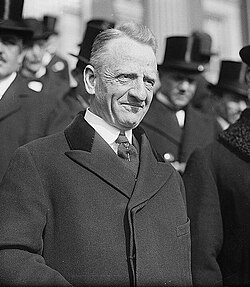| |||||||||||||||||
| |||||||||||||||||
 County and independent city results Glass: 80–90% 90–100% No Data/Vote: | |||||||||||||||||
| |||||||||||||||||
The 1942 United States Senate election in Virginia was held on November 3, 1942. Incumbent Democratic Senator Carter Glass defeated Socialist Lawrence S. Wilkes and was elected to his fifth term in office.


